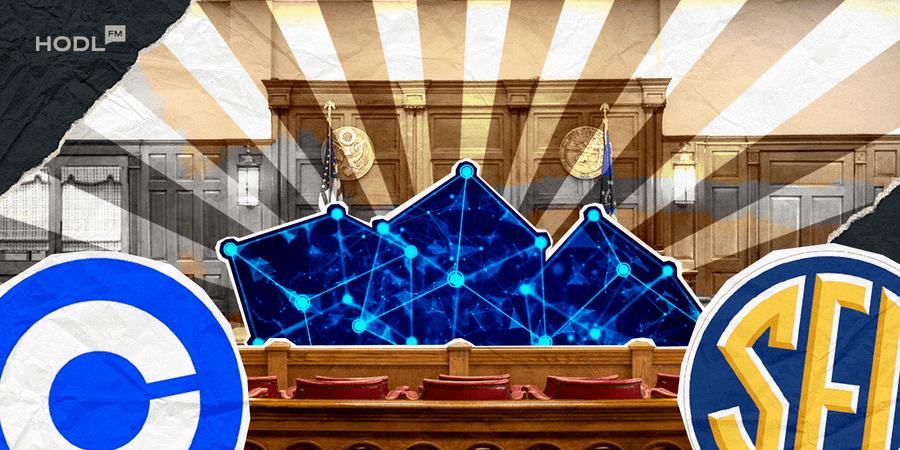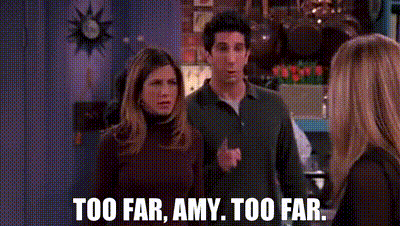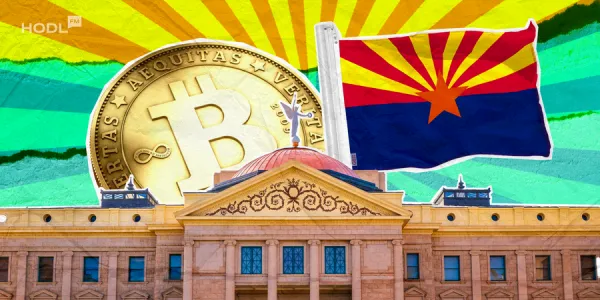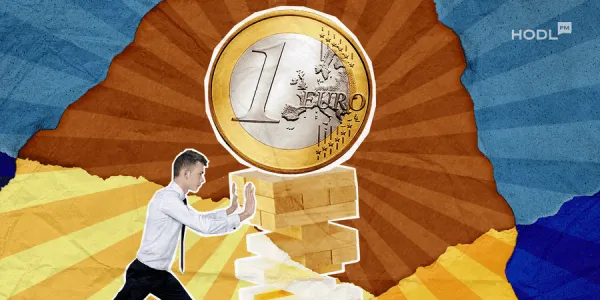A U.S. Southern District of New York judge is currently weighing the critical question of whether to dismiss the Securities and Exchange Commission’s case against Coinbase. The judge’s decision hinges on the debate of whether transactions involving any of a dozen cryptocurrencies should be labeled as unregistered securities. The crypto community is looking forward to the judge’s verdict, hoping for a positive outcome.
More Info: Coinbase Review: Pros, Cons, Features
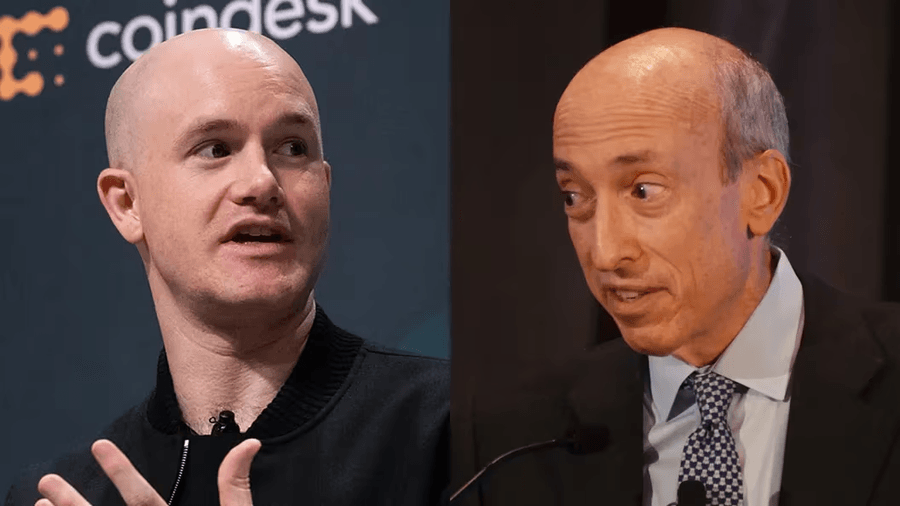
The SEC took Coinbase to court in June, alleging that the crypto giant facilitated trading with at least 13 cryptocurrency tokens, including Solana, Cardano, and Polygon. According to the SEC, these tokens were supposed to be registered as securities.
Adding a dash of intrigue, the SEC also set its sights on Coinbase’s “staking” program, where assets are pooled for blockchain network validation, earning commissions in exchange for “rewards” for clients. The SEC argued that this program should have been registered with the agency.
Proceedings Details
In the courtroom, both the SEC and Coinbase joined forces on a Wednesday court session, surprisingly agreeing that the tokens themselves aren’t the securities.
SEC’s legal eagles argued that each transaction is like an investor buying a ticket to the token ecosystem, hoping to share in the profit. They claimed that one of these transactions might be akin to an investment contract. Coinbase, on the other hand, insisted these are secondary market transactions that are not under contract, so they cannot be securities

“It’s the same computer code, regardless of which one of us owns it,” declared Patrick Costello, the SEC’s lawyer, arguing that the buyer may be handed a contract, but they’re really receiving digital assets. “The token is like a key that ushers you into the ecosystem. A token is useless without its ecosystem,” he added.
William Savitt, representing Coinbase and hailing from the legal troupe of Wachtell, Lipton, Rosen & Katz, countered, asserting that the elusive “investment contract” – that mystical security defined by the so-called Howey Test – actually demands contractual commitments between the token issuer and the buyer.
There must be a statement that includes an enforceable promise. If you don’t have that, you don’t have a contract.
William Savitt, Coinbase representative
He named it a “pure question of law.”
The Judge’s Neutrality
The judge skillfully tiptoed around expressing her viewpoint, finally admitting at one point, “This is a tricky question.”
Judge Failla delved into a couple of crypto SEC cases, including the agency’s defeat against Ripple and its triumph in the Terraform Labs lawsuit.
She remarked that Judge Jed Rakoff’s conclusion in Terraform, stating that crypto asset transactions are securities, “didn’t shock me.” However, it didn’t necessarily predict the token listings on the secondary exchange. “Terraform is a whole different game from the facts of this case.”
Cryptocurrency insiders rallied behind the judge’s seemingly skeptical stance on some of the SEC’s arguments during the hearings. “This entire hearing has been very skeptical of the SEC’s claims,” noticed Justin Slaughter, Paradigm’s Policy Director, on X.
Is the Regulator Going Too Far?
The judge’s final verdict is expected in the coming weeks, although she’s kept the timeline mysterious, adding her decision to a recent legal medley in the same court.
Read More:
- Ripple, Coinbase, and a16z Invest $78M to Support Pro-Crypto PAC Ahead of US Elections
- Navigating Ripple’s Legal Drama: The SEC Lawsuit
It’s either going to fuel the SEC’s eagerness to view crypto platforms as unregistered exchanges dealing in unregistered securities or stack up more legal losses for the agency on this front, solidifying the industry’s belief that the regulator is bending over backward. The fate of the entire crypto sector hangs in the balance.
Disclaimer: All materials on this site are for informational purposes only. None of the material should be interpreted as investment advice. Please note that despite the nature of much of the material created and hosted on this website, HODL.FM is not a financial reference resource and the opinions of authors and other contributors are their own and should not be taken as financial advice. If you require advice of this sort, HODL.FM strongly recommends contacting a qualified industry professional.
